Kate Bowler Oh, hello. My name is Kate Bowler and this is Everything Happens. My very favorite thing about this community is that we are a people who don’t do cliches. We just don’t. We are opting out of things that seem wise on T-shirts and coffee mugs. We’re just, we’re careworn. And so many of us have experienced pain and suffering in some intense way, whether it was expected or unexpected, because, no, the “at least you knew it was coming” doesn’t always help. We may have had the experience of being bludgeoned by other people’s well-intentioned but often cruel ways of explaining away our pain. “No, Sheila. God didn’t need another angel.” Okay, well, maybe we don’t say that to her face, but at least we whisper it under our breath as she walks away. But we just … get it. That this is a community who needs thicker language, better, lovelier, more delicate language. And we need people capable of living in uncertainty alongside us. And so I thought today we could talk a little bit about complicated grief and how to show up for other people, what to say, what to do, what it feels like being so cracked open to the pain of others, and then how sometimes in this strange alchemy, beauty and truth and courage can and does coexist alongside our suffering and deep grief and those of others. And that is a delicate argument that my guest knows so well, because he’s a rabbi and he is kind and wise and he has presided over a thousand funerals with wisdom. So meet my new friend, Steve. Steve Leder is the senior rabbi of Wilshire Boulevard Temple in Los Angeles, and he is the author of gorgeous, bestselling books like The Beauty of What Remains and For You When I’m Gone: 12 Essential Questions to Tell a Life Story. And I’ve heard about him for a bajillion years before this fateful moment. Oh, my word. Rabbi, thank you so much for doing this with me today.
Steve Leder It’s really my honor, Kate. I’m looking forward to our conversation.
Kate I read, of course, as one does, all of your work in preparation to meet you. And I was so grateful to be reading it now because yesterday I got a call from a friend and his wife had died. So I was at the wake and it’s the strange solemnity of moments like that where you’re at a wake or at a hospital visit and it’s so intense and it’s so weirdly beautiful, and you feel like you’re standing in the center of the universe for a second. And that’s a very odd feeling. But it’s one you know very well.
Steve It’s one I seek. It’s part of the reason I became … I became what I am because of who I am. I’m a person who wants real experiences. Real punctuation of the equilibrium. And most people have those kinds of experiences three or four or five times in their lives.
Kate Hmm.
Steve I have them three or four or five times a week. Now, there is, of course, a vicarious component to it. It’s not my loved one. But I’m in the front row right? A friend of mine, my hiking buddy, said to me, “You know, your job, you have a front row seat to life.” And I think that’s a pretty good way of understanding it. And if I had to guess why you felt that strange, exquisite, terrible, transcendent power was because Kafka was right. When he said the meaning of life is that it ends. And when you stare at that in face. When you stare death in the face, it changes your life. For the better. Death is what makes life beautiful. Wallace Stevens, the poet. I’m going to badly paraphrase it.
Kate That was so good! What was that?
Steve “The beauty of a flower is that it fades.” Why doesn’t anybody care about plastic flowers? You know why? Because they have no death. They have no life. They have no meaning. The beauty of a flower is that it fades.
Kate It’s weird. “Grief” isn’t a big enough word. Because I feel that when I look at my son, I feel it when I look at these little starry-eyed kids that I get to have in my life and the perfection of their little moon face, youth. You can like. It is like watching a flower. You have a tiny terrarium. It talks a lot, but it does create the like hits you in this strange place, like it’s punching you right in a certain chord.
Steve And you don’t realize, I certainly don’t, that it’s actually this flower is unfolding in time lapse photography in front of you. It’s going much faster than you realize. And that’s sort of both the beautiful part and the part that, if you’re conscious of it, can keep you more firmly connected to the experience. That it is ephemeral, that it is temporary, that it is always evolving. And that’s the beauty of it.
Kate Do you think that’s maybe if someone has had a before and an after in their life, the knowing they can’t “unknow” feeling? I guess I always think of the flicking the cord of the universe, I guess because you and I both believe in transcendence. We believe it goes all the way up and that it’s telling something us about God and telling us something about why we’re made.
Steve Yes.
Kate And then for some reason, it’s just like a whole song. It’s just a whole melody. I guess I’m trying to ask is, so do you think then in these before and after’s, being aware of our mortality, that’s the moment when we can never unknow?
Steve Yes. You know, since you’re Canadian, let me quote my favorite Canadian philosopher. Since this is kind of a high-brow podcast, you know, we use big words.
Kate You’re a high-brow guy. We can only ask the questions that are right for you.
Steve We use big words and stuff like that. So Marshall McLuhan said, “I don’t know who discovered water, but it wasn’t the fish.” Right? Because a fish is born in water, lives in water, dies in water. So, ironically, the fish is the idiot that doesn’t know it’s in water. And that’s us. I mean, that’s essentially God’s answer to Job in the Bible. Right. “Are you big? I am.”
Kate Yeah. “Where were you?”
Steve Right. “You don’t understand your own place in at all. Do you keep the ocean in it shores? Do you make the sunrise and set? Did you fill Leviathan’s nostrils with harpoons? Try it, little human.” We are like that fish. And when does a fish discover water? When it’s jerked out of it, wriggling at the end of a hook, gasping for breath. That’s when a fish discovers water. And it is only pain and disruption that can do that for us. That’s why I think that’s, why I know, I’m interested in this and I think it’s why you are interested in it, because disruption is the only thing that teaches us anything. Pain is the only teacher. Death is the only teacher. And is it worth it? No. Is it worthless? No.
Kate One: I already love you. Two: If there could be a creed for this podcast, it would be something like, “Don’t you dare be reductive about any things that are true but have a tendency to be crystallized into an aphorism that bludgeons people.” You know what I’m saying? So the podcast called Everything Happens because everything happens for a reason is so often the terrible weaponizing of lessons. But the way you’re describing it, that just makes me feel like it’s a community into which I am being invited, and it’s a lens by which I get to see the world. And I’d like to stay there.
Steve Yeah, it’s the fuel of truth. It changes your life from kabuki to truth. And, by the way, it has nothing to do with age. I remember when I was a young rabbinical student living in Israel, I went to hear a talk in Jerusalem by a rabbi who was the youngest child to survive Auschwitz. He went in at six years old and he survived. The first thing he said in his talk was, “There were no children in Auschwitz. The minute you walked through those gates, you were an adult.” Well, some people become adults at six-years-old. You became an adult in your thirties. I know enough about you to know that. I did not become an adult until I was 58-years-old.
Kate I would love to hear about that moment and about the relationship that changed you.
Steve So here’s what happened. And this is why I wrote The Beauty of What Remains. Because the beauty of what remains was an apology. For everything Steve Leder, the Rabbi, thought he knew about loss and grief. But that Steve Leder, the son, discovered wasn’t true. I live in Los Angeles. I grew up in Minneapolis. My whole family’s there. I have four siblings there. Everybody: nieces, nephews, you name it. My father died. This funeral and burial happened to be the morning of Kol Nidre, which is the holiest, most important night of the Jewish year. And I obviously cannot be with my congregation. We’re sitting in this little kind of library room at my parent’s synagogue, where the service was being held, and then we were going to the cemetery for the burial. And Jewish funerals always have a closed casket, but you’re allowed to go in and view first if you want to, which, of course, we all did. So we’re sitting in this room waiting for the young rabbi to come in and take us to view my father’s body in the casket. The rabbi walks in and I remember thinking to myself: I know exactly how the rabbi feels right now. But I have no idea how I feel. And then he walked us out into the sanctuary to see my father’s body in the casket before it was closed and people would be let in, etc. Now to understand the power of this, there’s one thing you need to know, which is that my father and I are physically almost identical. If you saw a picture of him at ten years old and a picture of me at ten years old, other than the clothing, you would have a hard time knowing who was who. I look in the mirror. It’s my dad. This is my dad. So I approached the casket. And I put my my hand on my dad’s chest because I wanted to touch him, but I didn’t want to feel that he was cold. So I put my hand on his chest. I looked at him. And my first thought was, “That’s how I’m going to look when I’m dead.” And my son is bending over my casket. I am going to die. 58 years. 32 as a rabbi officiating at more than a thousand funerals. I had stood next to a thousand families staring into a casket. And to be honest with you, you know, I could have been sipping a latte. It didn’t affect me. I was doing my job. I felt for them. It wasn’t my loved one. And a body is so obviously not the person. There’s so much more to us than our corporeal beings. Anyone who’s seen a body senses that immediately. But in this case, I wasn’t the rabbi. I was the son. And in that moment, I realized, I am going to die. And that realization changed my life and has made my life far more beautiful and far more meaningful. And I did not have a meaningless existence prior to that. So that was the moment I became an adult.
Kate That’s so beautiful. That kind of love is so, so intimate. Like your nose, your cheeks …
Steve Well, and the intimacy borne of decline. It’s very, very powerful. You know, my dad was a very tough guy. Very harsh. Very tough guy. Hilarious, but tough. And the last two years of his life because of his ten year journey through Alzheimer’s. He didn’t speak at all. And I learned a new language. My father and I learned a new language together, which was the language of touch. I would just sit with him for hours in the nursing home and just hold his hand when he was in his wheelchair. Said nothing. Did nothing. And it was so beautiful. Because all of his sharp edges were rounded, smoothed, and soften. And I know she wouldn’t be thrilled with me telling you this but I think the most intimate thing I have ever done with my wife was to empty her drains after her double mastectomy. That’s intimate. That’s vulnerability. That’s humility. That’s generosity. It’s so many beautiful things. Is it worth it? Again, no. But don’t let it be worthless. You know, I say to people all the time, if you have to go through hell, do not come out empty-handed. That’s the best we can do.
Kate That reminds me of my friend Sam, who is a pastor. He says, “If we cannot make it happy, can we at least make it beautiful?”
Kate I really like too, that you are so encouraging for people to get up so close to the suffering and the dying and into those caretaking roles, but keep their own personality. Like if they’re funny, then be funny.
Steve So important, Kate, so important.
Kate That’s good advice. I mean, I get this all the time of like, “Well, just tell me the magic formula and I’ll do that formula.”
Steve You actually have the magic formula. You just don’t know it. Because all that’s required is that you be yourself. You be authentic. And show up. So, I’ll make up an example. Steve, my best friend from college was just diagnosed with pancreatic cancer. He’s got 3 to 6 months. I’m going to fly back to Saint Louis to visit him. What do I say? What do I do? And I always say two words followed by two other words. The first two words are. “Show up.” Go. The second two words are: “Be authentic.” After all these years. Kate, when I’m standing on someone’s front doorstep going into the home of a family who’s grieving a loss or a dying loved one, or I’m standing outside in the hospital hallway before I go in the room, even after 36 years now, I don’t know what I’m going to say. All I know is I need to walk in there and be real. Be me.
Kate Yeah, that’s right.
Steve Now we all know how to do that. If you’re a joker, joke, if you’re a hugger, hug, if you’re an errand runner, run errands. If you’re a feeder, feed, you know, if you’re a book giver, give books. If if you’re a bed maker and you know you have OCD and you tidy up rooms, tidy up the hospital room, make the bed, whatever. Just be you. Because the last thing the person needs is for you to walk in and put on some phony, bad-acting job. “Oh, Oh Kate, I’m so, so, so, this is so awful, I’m so sad.” No, because really, what you need is some affirmation, some faith, some hope that the bottom hasn’t fallen out of the entire world. So what can assure you of that? When your friends are still like your friends, noot bad actors, right?
Kate Yes. It reminds me of when I was visiting my grandpa in hospice and he was a tough man. And his grouchiness was my favorite kind of grouchiness. But I was sitting there holding his warm, warm hand with his paper, just that thinned soft skin. And everyone was speaking in very gentle, hushed tones, and I don’t think my grandpa had ever tolerated that tone of voice in his entire life. And you know, he was a he was an angry, wonderfully grouchy bomber-pilot. And so finally, just really gently, I leaned over and I was like, “Grandpa. How many people do you think you’ve punched with that hand?”
Steve Exactly.
Kate There was a long, terrible silence. And then the staff looked over at me like, who let the granddaughter in and why is this happening? And finally it was maybe 8 to 10 minutes. And then he goes: “21. Yeah, maybe 22.” And he just been sitting there counting the whole time.
Steve By being you, you gave him permission to be him. Right? Hey, let’s talk about the shit we always talk about, okay?
Kate I Let’s talk about the bar fights used to get into. Yeah. Let’s talk about the time you guys constantly divert the beer truck.
Steve This leads me to another very helpful tip for people about what do I do. For most of us, at the end of our lives, our lives are going to come down to the square footage of a hospital bed. And the way to enable people to escape that square footage with the rails around it is to do exactly what you did with your grandfather, which is to take them on what I call “mental vacations.” So I go into a hospital room, the family is sitting around. Everybody’s acting like the person’s already dead. It’s, you know, hushed tones and all that. And and I’ll walk in and say … Well, let’s try it. Kate?
Steve What’s your husband’s name?
Kate Toban.
Steve Do you remember the first second you laid eyes on him? Where was it?
Kate Volleyball court at Red Rock Bible Camp. He was wearing an overly large purple tank top that was not modest for biblical standards.
Steve And when you first saw him. What went through your mind? What was your first thought? Tell the truth.
Kate That guy is very hot for being a Mennonite. We’re not always the low bar! We’re a weak-visioned people and we have our own limitations.
Steve We’re a bookish clan. Yes. So now. Do you see what we just did?
Kate Yeah.
Steve You were there?
Kate Yeah, that’s right.
Steve It was beautiful. And by the way, if your kids were listening, they would have that realization, like, “Oh, my God, my parents are people? What?”
Kate They’re like, “gross!”
Steve “She thought Dad was hot?”
Kate “My family’s gross! Wait a minute.”
Steve It’s so beautiful. You can take people on these journeys. I will never forget. I do this a lot. My early years. After this hour of a journey, first kiss, you know, all of that stuff. Best vacation you ever took. You know, it was the dumbest thing you ever did. But this husband turned to his wife who was dying, and he looked at her and said, “This is the best hour we’ve had in months.” That’s a gift. That’s a gift and it also does something else. It relates to the person as something other than a sick, dying person. You know, before I walk into a hospital room. I remind myself when you go in there, Steve, imagine this person when she was 30 or 40. Think of that face, that person and relate to her. Not to deny her circumstances, but remember that this is more than a diminished or dying person. So much more.
Kate I’m just thinking about humor and the ability to say things that we might not have been able to say about people who are dying before. Maybe they, I don’t know, had a terrible personality or we won’t miss much about them, or they lied about who they were and who we were to them and the public story we would tell about them just seems not true. How do you advise people who are not sure how to tell the story?
Steve When I sit down the family, I’ve crafted a series of questions that help a person’s life unfold. The truth, not the facts. You know, I used to teach a course at the seminary called homoletics which was just a fancy word for how to write sermons, wedding addresses and eulogies. And when I would get to the eulogy section of the syllabus, I taught for like 13 years, I would write on the board: An obituary is the facts. A eulogy is the truths. So when I gather with a family, I start with a few facts just to get them talking. But I’m digging for the truth. Now I ask a few questions and everybody’s jolly and laughing and all. “Yeah. Mom, really? You kissed him on that bridge? And when you were 17, did your parents know?” We’re all having a great time and “Oh, he was so wonderful. He was funny.” And then I stop and I say, “Okay, so far he sounds perfect and no one’s perfect.” And then I watch. And I watched their eyes dart around to each other as if to say: “How does the rabbi know? Can we talk about this?” And then I say to them, “Look. I want to get to the truth. Trust me, to handle it with great sensitivity and dignity. Or not at all, if you’d rather. But let’s talk about it. Because that’s a whole human being and there are ways to talk about it publicly.” So there’s this Hebrew phrase hamevin yavin, which translated, basically means those who know will understand. And those who don’t know will just think, hmm. So, for example, let’s just say I’m making this up, of course, that you are a neurotic, annoying helicopter mom. It’s impossible for that to be true. But let’s just say and I’m meeting with your kids to prepare. And I said, “Well, it wasn’t perfect.” And they’ll say, “Well, she was all over me all the time. And it wasn’t easy. Like, Why are you wearing that? Where are you going? What are you doing? You know, you look fat. What’s wrong with you? Your hair. You’re this or that. Why can’t you meet a nice Mennonite boy?” You know, whatever. What I would say in the eulogy would be something like, “It wasn’t always easy being her daughter. But everything she did came from a place of deep and abiding love.” Now you feel heard. Your truth has been told, but in a way that anyone else would just go, yeah. Or I’ll say something like, “The worst sin a parent can perpetrate upon a child is the sin of indifference. Kate was never indifferent.”
Kate But it’s all.
Steve Right. And the kids are either going to laugh or smile or feel heard and everyone else is going to say, “Wow, what an awesome mom.” So you have to be kind of deft so that those who know understand and those who don’t won’t be provided anything that might bring embarrassment to the mourners. It’s an art.
Kate Yeah. I was just going to say what an art form.
Steve Eulogies are an art because there’s so many constituents that need to be attended to. There’s the grief constituent. There’s the laughter and love constituent. There’s the inner circle of family. Then there’s the next circle of friends. There’s a circle of obligatory, you know, my, my law partners, my this, my that. There are all these levels. Sometimes the circumstances of the death have to be dealt with in a sensitive way. If someone died by suicide or, you know, someone young dies of cancer or whatever it is. Or in my father’s case (and I wrote the eulogy for my dad). the person died twice. Which is what happens to people with Alzheimer’s and dementia. You lose them. They die twice. My father died the first time when his brain was no longer the brain of my father. It was a different person. And then he died physically when his body died. And both need to be addressed. So this time-travel component we just talked about with your you meeting your hot, Mennonite, volleyball-playing Tobin. That’s very important too, like, hey, everyone. The beautiful part of memory is we now get to travel back. We get to travel back to her before the doctors and the needles and the tubes and tests and the pain. To this person. And and so it is an art. It honestly takes more skilled than it than one might imagine.
Kate The feeling that, when we’re summing up a life, we’re talking about the past and the present and the future, there are some things that I find very uncomfortable about about my faith that we do to remind ourselves of our mortality. Like for Ash Wednesday, right? We smear even little babies with ashes and we say, “To dust you will return.” There’s this beautiful Jewish tradition you were writing about, that blessing they say at a death.
Steve “Baruch dayan ha’emet.” Blessed be the judge of truth.
Kate What does it mean to say that at a death?
Steve It means that we are affirming our limited agency. And understanding. And that we have faith. That despite it being in ways we can never understand or excuse or defend, that life and death are powers beyond our control and our grasp. It’s an expression of faith, essentially. Now, let me tell you some inside baseball rabbi stuff.
Kate Yes, please.
Steve This is said when we cut the clothing or tear a black ribbon, which is a sign of grieving. It’s a kind of a way of showing on the outside how we’re feeling on the inside. It also projects out into the world that we’re in mourning and please treat us a certain way. The Victorians, for example, dressed in black for for up to two years as a way of just telling people, please be be sensitive, be kind. I’m suffering. So this “baruch dayan ha’emet,” blessed is the judge of truth, is said when tearing. Okay, now when I’m tearing the ribbon of two parents who are burying a two-year-old. I don’t, I don’t translate it. I don’t say that means, “blessed is God who is the judge of truth. It was time. It was little Joey’s time.” I can’t say it. I can’t say it. So I just don’t translate it. And they’re in a fog and they don’t ask. Okay. But when, for example, I said it at my father’s funeral, I had a very easy time affirming it. It was time. It was time and it was all a mystery. It’s a tricky thing theologically, too, because of course, then it grants the agency to God, and that means God wanted that two-year-old dead. And I don’t believe that. And so it’s a very tricky thing theologically, which is not appropriate to delve into in that moment.
Kate Yeah. I feel this way a lot with talking about God’s reasons, God, sovereignty. You know, there are times when that feels like it is gravity. You know, it holds me to a world that I understand that God made. But there are times where talking about God’s reasons feels absolutely absurd.
Steve Yes. And it assumes that cosmic justice and earthly justice are the same thing. And I doubt that they are.
Kate Yeah. It always feels like adding the like, “And I know those reasons, and I’m about to explain them to you in this moment.”
Steve I don’t assume. I mean, I think Job is the most important book in the Bible. First of all, it refutes that whole Deuteronomic formulation that you suffer because your sin. Some people suffer because they sin. I think some people smoke three packs a day get lung cancer, and it makes perfect sense. Okay. But what about that two-year-old? What did that child do? So the Book of Job comes to say, first verse, “Job was a blameless man.” Innocent victim. Bad things really do happen to good people and worse, good things happen to really bad people. And therefore cosmic justice and earthly justice cannot be the same. Nor is humankind, necessarily, the center of God’s concerns. I mean, that’s why in the Book of Job, God says to Job, “I make it rain where no person lives.” What is God really saying? God is saying, “You get over yourself, dude.”
Kate Yeah. When all the trees fall in all the woods and no one is there to hear them, I am still God. Yeah.
Steve I have come to the conclusion. My only expertise is in Judaism and being a 62-year-old man with my past, that’s the only thing I know anything about. And even that’s partially a mystery, which I’m unraveling for $300 an hour. But I have come to the conclusion that duality is the fuel of life itself. This dichotomous tension that cannot be resolved. Death reveals so many powerful dualities. One we’re talking about right now, which is life matters. And it doesn’t matter at all. I matter. And I don’t matter at all. You matter and you don’t matter at all. You know, there’s this rabbinic folktale. It says every person should have should have pants with two pockets. In one pocket. We should carry the verse: “The world was created for me” and in the other pocket the verse, “I am but dust and ash.” And it is the dichotomous tension between those two realities. That is, I believe, as I said, the fuel of life. Memory is a duality. You know, rabbis, I think all clergy are full of…
Kate I can’t wait for the end of this sentence. Wisdom and many stories. But they can’t push their kid on his way without writing about it.
Steve I mean, let me preface this with a Yiddish aphorism, which is, “A half truth is a whole lie.” So clergy tell a lot of half truths about memory. “May her memory be a blessing.” “You’ll always have her in your memories.” “We have the power and beauty of memory now, to go back to Kate before the doctors and the needles and the tubes.” And it’s true. Memory is beautiful. But it also really, really hurts. It’s both. There’s a dichotomous tension, there’s a duality to memory. I want to think about my dad. I don’t want to think about him at all. I want to remember. I want to forget. That’s the truth. Okay. The whole truth, not the half truth, which is a lie. Now, as I’ve matured and experienced these things and studied and thought more deeply about them. For me in my own life, what I have found that has brought me peace within that tension, is that making peace with the fact that this is a duality. It is irreconcilable, is a reconciliation.
Kate I really like that.
Steve And knowing that duality is the essence of what it means to be human is a resolution. And this idea that memory can’t be reconciled, that it can’t be just one or the other is a resolution. That life and death can’t be reconciled is a resolution. All of these dualities. Once you accept them as dualities, definitionally.
Kate Right and as not a formula.
Kate Because so often the say script for like if you were a self-help guru, you’d be like, “Dear Kate, comma. Thank you so much for having me. There’s a solution to the problem of pain. It’s the past and we travel into the past and there we can create common coherence and a fully-formed story. And we can live there.” And then, of course, we like you’re saying, it’s only can only be partly true. We lose we can lose the memory of that person. And then we wonder, what are we being held by? And I used to go absolutely bananas when people tried to tell me to “live in the present,” because that was going to be another solution. And I was like, “Well, the present is a hospital room and the present is Wednesdays with chemo for years and years.” So if I live locked here forever without a future, then I can’t be a human. And you’re saying, let’s go everywhere. Let’s go to the past and the present and the future. Your humanity will be there. God will be there.
Kate Yeah, but they like your resolution. But not a formula language.
Steve And it’s the truth of it. It’s the best we can do. A shadow is also proof of light, right? You can’t have a shadow without light. It’s total darkness. So a shadow, no matter how long or how dark … and it’s pretty shitty to be walking in a valley of shadows.
Kate Yeah.
Steve It’s helpful to remember. Well, there’s even a duality to that because the shadow is actually proof that the sun is shining behind those mountains. And that has to be enough. Because that’s all we’ve got.
Kate That is the most beautiful, least trite version of that I could possibly imagine. And for that and a million other reasons, I feel so grateful we met. Thank you for this totally gorgeous, unbelievably honest conversation.
Steve Well, listen, it’s a reflection of a beautiful duality, which is. Which is your part in all of this. Most podcasts are not like this. And that says more about you than it says about me. And you probably, I’m guessing, would not be capable of this had you not been through what you went through.
Kate That’s right.
Steve And no, it wasn’t worth it. I mean, that’s right? That’s the duality.
Kate I wish I had that on an answering machine message. Just you say that over and over again.
Kate I very frequently want to punch people in the face or throat who say that “pain is our greatest teacher” because mostly it happens in a yoga class and I just don’t take downward dog that seriously. But there is something at the heart of that saying that rings true. Pain transforms us in a way we can’t unlearn with lessons we don’t want to forget. And of course, this is the kind of wisdom I wish that none of us had to know because no, it wasn’t worth it. But as Steve says, “If you have to go through hell, don’t come out empty-handed.” So here’s a blessing for all of us who wrestle to find goodness and hope and beauty through it all. And it’s from Jessica and I’s new book of Blessings, which is called The Lives We Actually Have. “Blessed are you, who feel the wound of fresh loss. Or of a loss, no matter how fresh, that still makes your voice crack all these years later. You are stuck in the impossibility of it. Frozen in disbelief. How can this be? It wasn’t supposed to be this way. Blessed are you, fumbling around for easy answers or quick truths to try to make this go down easier. You who are dissatisfied with the shallow theology and trite platitudes. Blessed are we, who, instead, demand a blessing. Because we have wrestled with God and are here. Wounded. Broken. Changed. Blessed are we, who keep parenting, who keep our marriages and friendships and jobs afloat, and who stock the pantry … because … what choice do we have but to move forward with a life we didn’t choose with a loss we thought we couldn’t live without? One small step. One small act of hope at a time.” All right, my loves. Bless you. Have a beautiful, terrible week, and I’ll see you next time.
Jessica from Southern California Hi, Kate. The best thing that somebody told me when I was grieving was, “Oh my goodness, this is going to hurt. And it’s going to hurt for a really long time.” This is Jessica from Southern California.
Karen from Washington Hi, Kate. This is Karen. I’m calling from Wenatchee, Washington. And I saw your question about what’s the best thing anyone ever did for you while you were grieving. And, boy, I just had tears to my eyes because I have been blessed with the most wonderful community of friends. And this specific memory came to mind of walking in my front door in a season when my dad had died about a year and a half earlier, and my mom had recently suffered a pretty significant stroke and she was in an acute rehab center. So she was needing a lot of care and I was spending about 10 hours, 10 to 12 hours a day with her. And I walked in the front door and I just remember there was a laundry basket full of my clean laundry, all folded up right at the foot of the stairs, piled up, and then like another pile of washed, folded laundry next to it. And then I came all the way into my kitchen and there was a meal that somebody had recently delivered there and my house was quiet because all my kids were still at another friend’s house. Just when love takes such action. I just felt so loved and supported in my time of grief.
Laura from Ohio Hi, Kate. This is Laura from Ohio. A few years ago, I had a miscarriage around 12 weeks and had to have a D&C surgical procedure because it was actually a dangerous pregnancy. The day after that happened, my best friend basically just texted me and said, “Unless you tell me otherwise, I’m taking your daughter to the zoo with us today.” I love that she was able to even just take that small decision out of my hands during such a rough time.
Margaret from Virginia Hi, Kate. This is Margaret from Richmond, Virginia. I lost my dad almost four years ago very suddenly and I was two months postpartum with my second son. I felt so loved and remembered by the friends and strangers who dropped off dinner nightly, weekly for months on my doorstep. So, food. And number two, people continued to ask about my dad. And I remember feeling so delighted when someone took a second to let me talk about him and to not be scared to enter into that with me, even if it brought up some of those really hard emotions.
Joyce from Oregon Hey, Kate, this is Joyce calling from Shoals, Oregon. My husband died just about two years ago. I was in the house one day and suddenly heard a lawnmower sound and looked out the back. I live on a pretty large lot and one of my former coworkers and friends was on my riding lawnmower just mowing the lawn. He hadn’t knocked on the door. He hadn’t called. He didn’t say a word. He just came and mowed the lawn.
Mallory from California Hey, my name is Mallory. I’m calling from California. Six years ago, when my husband’s father passed away unexpectedly, we went go to be with the family, someone from my in-laws’ church who had just an extra refrigerator in their garage (I don’t know if they used it for parties or drinks or whatnot) they emptied that out and they brought it over to my mother in law’s house and they plugged it in and her garage so that she could put all the extra food that was being brought in there and keep things fresh while she had family over grieving. And not only did they do that, but they brought over a box full of paper plates and paper towels and toilet paper. And it was the most unexpected, kind, and helpful thing that none of us would have ever thought that we needed. And it was just so helpful and intuitive. It was really beautiful.
Julie from Massachusetts Hi, my name is Julie Sullivan, and I’m calling from Massachusetts. When I was about 36 years old, I had a miscarriage and my husband and I had been trying for a few years to have a child. And we were close friends with a young Catholic priest. And despite having several commitments that evening, he canceled everything and came over to our house to be with us. And he didn’t tell us that everything happens for a reason. He didn’t say that heaven had another little angel. He didn’t say it was for the best. He was just present with us in our grief
Jan from Nashville Hi, I’m Jan from Nashville. And I would say starting with “Remember when…” and using the person’s name who I’m missing. Naming is such an important thing to say their name, to tell their story, to remember the joy of their life. Thank you.
Kate This episode of the Everything Happens podcast was made possible because of our generous partners Lilly Endowment, the Duke Endowment, Duke Divinity School and Leadership Education. And of course, nothing is possible without the wisdom and expertise of my absolutely fabulous team. Jessica Richie, my heart, I love you. Harriet Putman, Keith Weston, Gwen Heginbotham, Brenda Thompson, Hope Anderson, Jeb Burt and Katherine Smith. This really is my very favorite kind of group project. So if you want to know what else we’re up to, head over to katebowler.com/newsletter so you don’t miss a thing. I would really love to hear what you thought about this episode. Would you consider leaving a review on Apple Podcasts or Spotify? It means a ton to us when we hear what you liked or who you want to hear in conversation next. Also, we really love hearing your voice. Feel free to leave us a voicemail. We might even use it on the air. So call us at 919-322-8731. All right, lovelies. I’ll talk to you next week. But in the meantime, come find me online at @katecbowler. This is Everything Happens with me, Kate Bowler.
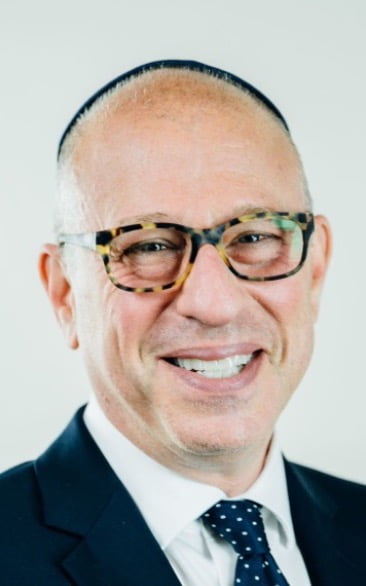

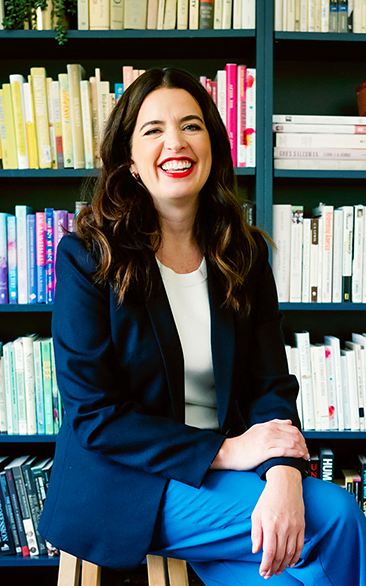








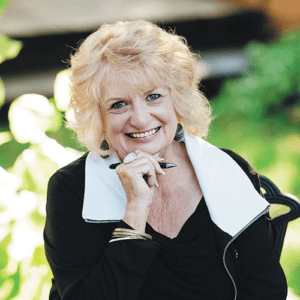
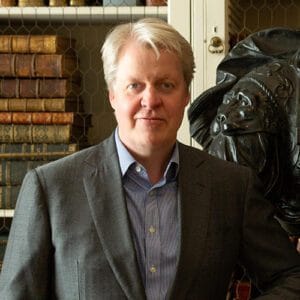
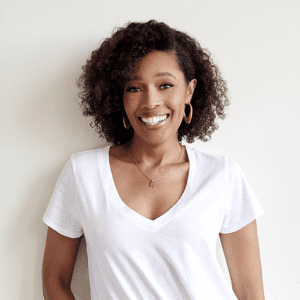
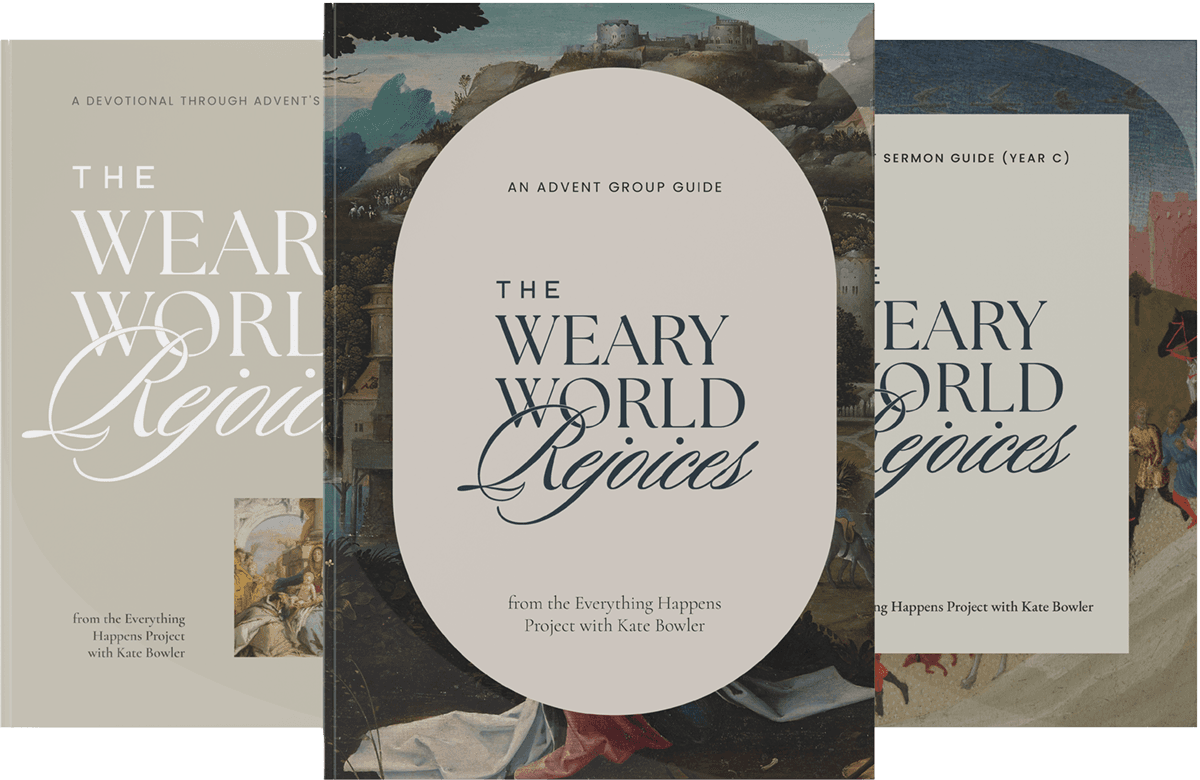
Leave a Reply